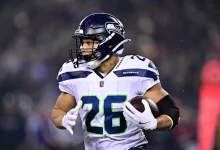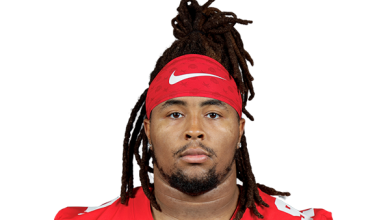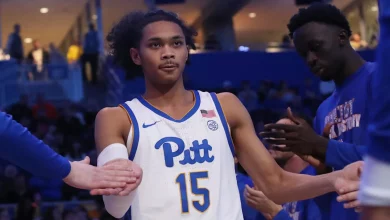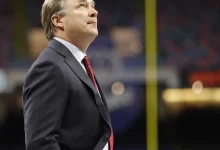Kirby Smart’s bold take on NIL says everything about College Football’s future
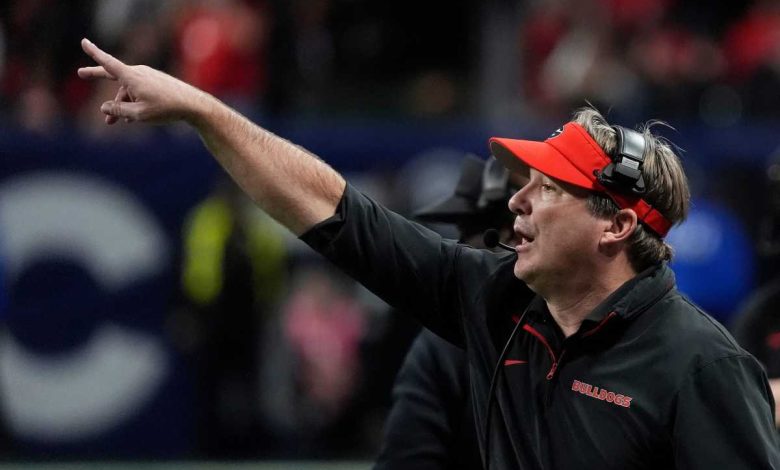
Kirby Smart’s bold take on NIL says everything about College Football’s future
In the world of college football, few names are as synonymous with success as Kirby Smart. As the head coach of the University of Georgia football program, Smart has propelled the Bulldogs into the upper echelons of college football, consistently competing for SEC championships and national titles. However, Smart’s influence stretches beyond his coaching prowess; his voice carries significant weight when it comes to discussing the future of college football, especially in the rapidly evolving landscape shaped by the NIL (Name, Image, and Likeness) movement.
Over the past few years, NIL has fundamentally altered the college athletics ecosystem. Once seen as an amateur pursuit, college sports now operate in a world where athletes can profit from their personal brand, thanks to a landmark decision by the NCAA in 2021. This decision allows college athletes to sign endorsement deals, engage in brand partnerships, and receive compensation for their name, image, and likeness. While this change has been hailed as a major step forward for athlete empowerment, it has also sparked intense debate, with some coaches, players, and pundits questioning the long-term implications of NIL on college sports.
Among the voices shaping this debate, Kirby Smart stands out for his candid and bold take on the matter. In a series of interviews and public comments, Smart has made it clear that he believes NIL, while important, should not overshadow the essence of college football. His stance is not simply about navigating a changing landscape — it’s about preserving the integrity of the game and ensuring that the sport remains rooted in its core values of competition, teamwork, and student-athlete development.
Smart’s bold take on NIL speaks volumes about the direction of college football in the years to come. His perspective offers a glimpse into the potential challenges and opportunities that will shape the future of the sport. As Smart continues to evolve as a coach and a leader, his comments on NIL provide crucial insight into how programs like Georgia will adapt — and, perhaps more importantly, how the college football experience will look for players, coaches, and fans alike.
### **The Rise of NIL and its Immediate Impact on College Football**
The introduction of NIL has been a game-changer for college athletics, and its impact on college football has been particularly pronounced. When the NCAA lifted its long-standing ban on athletes profiting from their name, image, and likeness in 2021, it ushered in a new era of college sports. Athletes are now allowed to sign endorsement deals with companies, create social media content, and engage in promotional activities that bring in significant financial compensation.
In many ways, the NIL revolution has provided athletes with the opportunity to capitalize on their college football careers in ways that were previously unheard of. Players like *Bryce Young* (Alabama), *D.J. Uiagalelei* (Clemson), and *Spencer Rattler* (South Carolina) have all made headlines for securing lucrative NIL deals with major brands, further emphasizing the growing intersection of college football and business. For many players, NIL has become a means to not only secure financial independence but also build their personal brands before they even reach the NFL.
However, NIL’s sudden rise has not been without its challenges. One of the most significant concerns has been the growing sense of imbalance in college football. Programs with deep pockets, like Alabama, Texas A\&M, and USC, are able to offer their athletes more lucrative NIL deals, potentially creating a power imbalance between the haves and the have-nots. Smaller programs or schools with less financial backing may find it difficult to compete in this new world where name, image, and likeness have become a major currency.
For coaches like Kirby Smart, this presents both a challenge and an opportunity. On the one hand, Smart recognizes the value of NIL for helping athletes gain financial independence and recognition. On the other hand, he has consistently argued that the true essence of college football — the love of the game, the pursuit of championships, and the development of young men — should remain at the forefront of the sport. Smart’s comments on NIL reflect his desire to preserve the integrity of college football while adapting to this new reality.
### **Kirby Smart’s Position: NIL is Important, but Football Comes First**
Kirby Smart has been a vocal proponent of NIL, but he has also made it clear that he believes it should not dominate the college football conversation. In a press conference during the 2022 season, Smart said, “NIL is a tool that can help athletes, but it shouldn’t be the reason you choose a school. At the end of the day, this is about football. We’re here to compete at the highest level, to win championships, and to develop young men into NFL players, successful professionals, and future leaders.”
For Smart, NIL should enhance the college experience for athletes, not overshadow it. His stance is grounded in the belief that the primary purpose of college football is to foster competition and growth in both athletics and academics. Smart’s program at Georgia has long prided itself on its commitment to team-oriented success, player development, and maintaining a high level of discipline on and off the field. The introduction of NIL, he argues, should not change that foundational approach.
One of Smart’s main concerns with the rapid commercialization of college football through NIL deals is the potential for players to become more focused on financial gain than on the sport itself. “The last thing we want is for our players to be thinking more about their Instagram following or endorsement deals than about winning games and helping their teammates,” Smart emphasized in a 2023 interview. “Football has always been about hard work, sacrifice, and team-first mentality. If NIL starts to shift the focus away from that, we risk losing what makes college football so special.”
This perspective is not just about preserving tradition for tradition’s sake; it’s about maintaining a culture of discipline, camaraderie, and academic integrity. Smart understands the value of NIL, but he is resolute in his belief that football should remain the primary focus for college athletes. Under his leadership, the Georgia Bulldogs have become a model of team-oriented success, where winning championships and developing players for the NFL are the central priorities. NIL, Smart suggests, should serve as a supplement to these goals, not as a distraction.
### **A Future Defined by Financial Inequality?**
One of the key issues that Smart raises when discussing NIL is the growing financial inequality in college football. While larger programs with substantial financial resources can offer players lucrative NIL deals, smaller schools or those with less financial backing face a steeper uphill battle. Smart, ever the realist, acknowledges that NIL deals could create a disparity in talent acquisition between the “haves” and the “have-nots.”
“The biggest challenge is that NIL deals, as they stand, are not being distributed equally,” Smart stated in a recent interview. “You have some programs that can afford to pay their players top dollar, while others can’t even come close. That’s going to create an imbalance that will affect the competition on the field. If this becomes about money, we’re going to lose the spirit of what college football is all about.”
Smart’s concerns about financial inequality in college football are not unfounded. As more and more programs dive into the NIL market, we are seeing an increasing divide between the haves and the have-nots. Schools like Alabama, Georgia, and Texas A\&M have set up elaborate NIL programs, offering players a range of endorsement opportunities, while smaller programs in Group of Five conferences or non-Power Five conferences may struggle to keep up. This has the potential to create a larger gap between the elite programs and those on the fringes, potentially hurting the overall competitiveness of the sport.
Smart’s criticism of NIL’s financial inequality is not just about protecting Georgia’s interests — it’s about ensuring that college football remains a level playing field. While larger programs have the resources to create lucrative NIL opportunities for their athletes, Smart’s message is clear: the integrity of the sport must remain paramount, and the focus should be on competition and player development, not the size of one’s paycheck.
### **NIL and the Changing Role of College Coaches**
In many ways, NIL has fundamentally altered the role of college football coaches. Once primarily tasked with leading teams on the field, coaches like Kirby Smart now find themselves in the position of managing NIL opportunities and ensuring that their players can navigate this new financial landscape responsibly.
For Smart, this means adapting his approach to recruiting, training, and mentoring players in the age of NIL. While Smart continues to emphasize the importance of hard work, discipline, and team success, he also recognizes that NIL is a part of the modern college football experience. His coaching staff works closely with players to ensure that they understand the financial opportunities available to them while also maintaining the focus required to succeed on the field.
Smart’s approach to NIL is one of balance. While he is committed to ensuring that Georgia players are well-positioned to take advantage of NIL deals, he also insists that the emphasis remain on football. In the eyes of Kirby Smart, NIL should never become the driving force behind a player’s decision to come to Georgia; it should be the love of the game, the pursuit of championships, and the desire to become the best player possible that motivates every recruit.
### **A Vision for the Future: College Football’s Next Evolution**
Kirby Smart’s bold take on NIL is a reflection of his commitment to preserving the integrity of college football while also acknowledging the realities of the new financial landscape. As NIL continues to evolve, it will undoubtedly shape the future of the sport in ways both expected and unforeseen. Smart’s vision for the future of college football, however, remains rooted in the core values that have defined the sport for generations: competition, team success, and player development.
In the years to come, Smart’s leadership will be crucial in navigating the intersection of NIL and college football. His ability to adapt while remaining true to the principles that have made Georgia one of the top programs in the country will serve as a model for other coaches and programs grappling with the challenges of NIL.
Ultimately, Kirby Smart’s bold take on NIL says everything about the future of college football: while financial opportunities for athletes will continue to grow, the essence of the game — the love of football, the pursuit of championships, and the development of young men — must remain at the forefront. The balance between these two forces will define the next era of college football, and coaches like Smart will play a key role in ensuring that the sport’s future remains bright.


